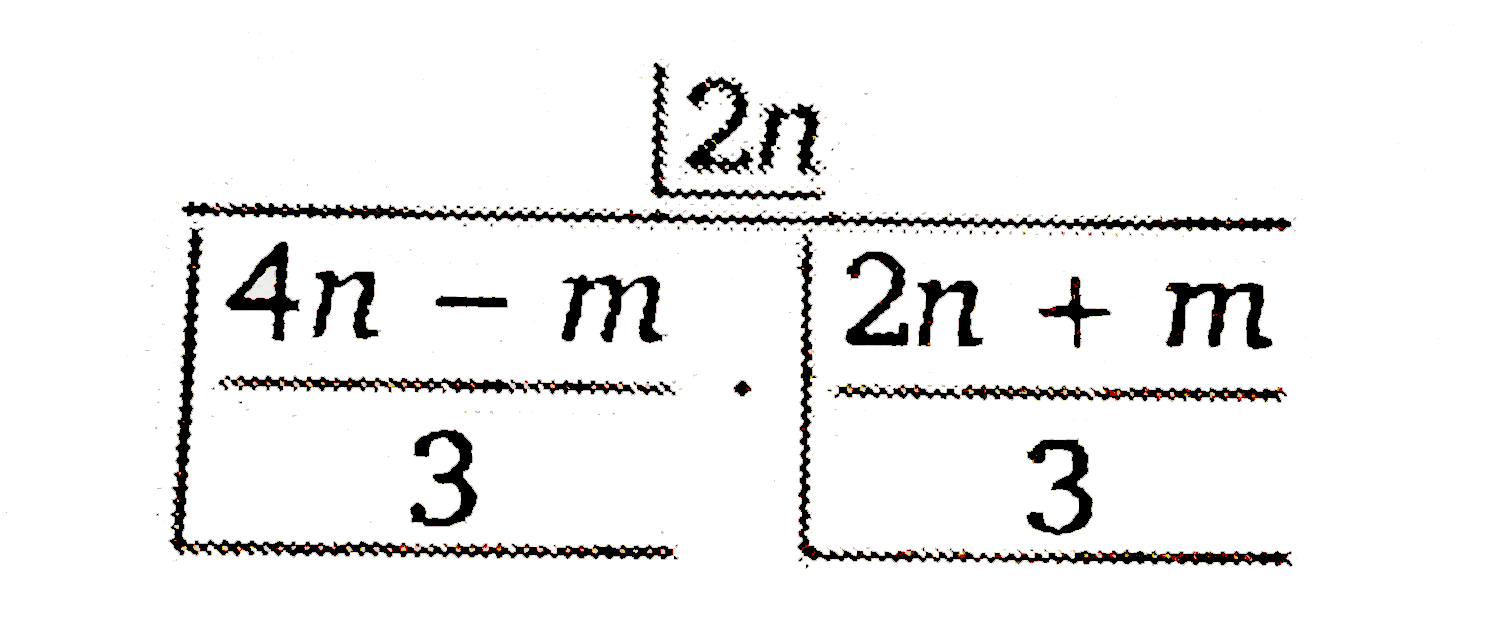Let m be the smallest positive integer such that the coefficient of x2 in the expansion of (1+x)2+(1+x)3+…….+(1+x)49+(1+mx)50 is (3n+1).51C3 for some positive integer n, then the value of n is _____.Solution in Punjabi
The correct Answer is:5
Step by step video & image solution for Let m be the smallest positive integer such that the coefficient of x^(2) in the expansion of (1+x)^(2)+(1+x)^(3) + "……." + (1+x)^(49) + (1+mx)^(50) is (3n+1) .^(51)C_(3) for some positive integer n, then the value of n is "_____". by Maths experts to help you in doubts & scoring excellent marks in Class 12 exams.
Updated on:21/07/2023Topper's Solved these Questions
- BIONOMIAL THEOREMBOOK - ARIHANT MATHSCHAPTER - BIONOMIAL THEOREMEXERCISE - Binomial Theorem Exerciese 7: Subjective Type Questions
5 Videos
- AREA OF BOUNDED REGIONSBOOK - ARIHANT MATHSCHAPTER - AREA OF BOUNDED REGIONSEXERCISE - Exercise (Questions Asked In Previous 13 Years Exam)
23 Videos
- CIRCLE BOOK - ARIHANT MATHSCHAPTER - CIRCLE EXERCISE - Exercise (Questions Asked In Previous 13 Years Exam)
16 Videos
Similar Questions
Show that there will ve a term indepandent of x in the
expansion of (xa+a−b) only , if an is multiple of (a+b) .
View SolutionArea of the region
{(x,y)∈R2:y≥√|x+3|,5y≤x+9≤15} is equal to
View SolutionFind the derivative of (ax4−bx2+cosx)
View SolutionIf n is a positive integer, find the coefficient of x−1 in the expansion of (1+x)n(1+1x)n.
View SolutionLet m be the smallest positive integer such that the coefficient of x^2 in the expansion of (1+x)^2 + (1 +x)^3 + (1 + x)^4 +........+ (1+x)^49 + (1 + mx)^50 is (3n + 1) .^51C_3 for some positive integer n. Then the value of n is
View SolutionIf m and n are positive integers, then prove that the coefficients of xm and xn are equal in the expansion of (1+x)m+n
View SolutionIf 'n' is a positive integer then prove that the coefficient foxm in the expansion of (x2+1x)2n is :

View SolutionProve that : If n is a positive integer and x is any nonzero real number, then prove that
C0+C1x2+C2.x23+C3.x34+….+Cn.xnn+1=(1+x)n+1−1(n+1)x
View Solutionयदि n धन पूर्णांक है तो (1+x)n(1+1x)n के प्रसार में 1/x का गुणांक ज्ञात कीजिएः।
View SolutionIf n is a positive integer then the coefficient of x−1 in the expansion of (1+x)n(1+1x)n is-
View SolutionLet , m be the the smallest positive interger such that the coefficient of x2 in the expansion of (1+x)2+(1+x)3+....+(1+x)49+(1+mx)50 is (3n+1)51C3 for some positive integer n . Then the value of n is ,
View SolutionIf n is a positive integer and the coefficient of x10 in the expansion of (1+x)15 is equal to the coefficient of x5 in the expansion of (1−x)−n then n =
View SolutionLet m be the smallest positive integer such that (1+x)^(2)+(1+x)^(3)+....+(1+x)^(49)+(1+mx)^(50) In detail of x^(2) Coefficient of (3n+1)^(51)C_(3) Is for a positive integer n. Then the value of n is
View SolutionLet m be the smallest positive integer such that the coefficient of x2 in the expansion of (1+x)2+(1+x)3+(1+x)4+........+(1+x)49+(1+mx)50 is (3n+1).51C3 for some positive integer n. Then the value of n is
View SolutionIf n is a positive integer, find the coefficient of x−1 in the expansion of (1+x)n(1+1x)n.
View Solutionमाना कि m एसा न्यूनतम धनात्मक पूर्णाक (smallestpositive integer) ह कि (1+x)2+(1+x)3+…….(1+x)49+(1+mx)50 के विस्तार में x2 का गुणांक (3n+1)5IC3 किसी धनात्मक पूर्णाक n के लिए है। तब n का मान है
View Solution
